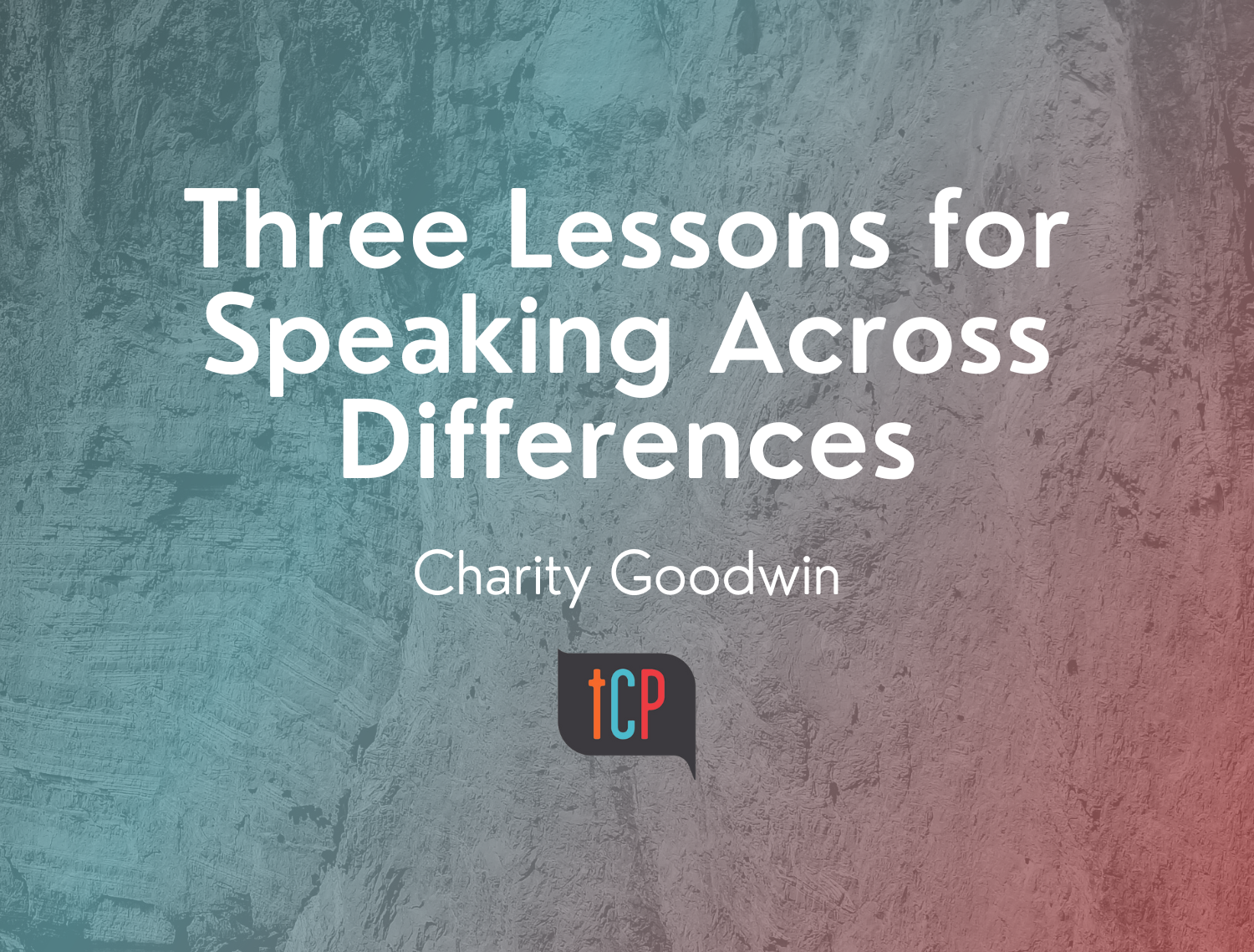Three Lessons for Speaking Across Differences
By Charity Goodwin
From being a persecutor of Jesus followers to a persuader and proclaimer of the Gospel, the apostle Paul is complex. I’m a woman in ministry, and Paul is ascribed some problematic words pertaining to me as a woman, and a woman in ministry. So I sometimes approach Paul with suspicion. Just staying above board on that. That said, I know we can learn from anyone—ANYONE. And I’ve found three lessons from Paul in Acts 17:16-34 that can serve Christians today as we engage in conversations across difference.
Paul, disturbed by the gross “idolatry” he observes, begins preaching to the people and scholars in Athens (v.17). It strikes me that he’s hanging out in Athens waiting on Silas and Timothy to return. So meanwhile, Paul preaches to a community of pagan gentiles who have not so far been his primary audience. Unlike the lone apocalyptic prophet in the Speaker Circle at my alma mater who shouted “End times! Repent!” gibberish at us as we walked by, the people of Athens actually listen and are intrigued by what he’s sharing.
The first lesson I take from Paul is that as we engage across differences, we should check our motives. On one hand, being provoked by another’s way of being and believing can come across as condescending and self-righteous. Don’t be that way. On the other hand, there is a kind of disturbance or stirring that can embolden us to winsomely speak up about our faith in Jesus in class, work, our activism, and in our personal relationships. Be careful though: Paul was characterized as a “babbler.” When he arrives he begins preaching. He doesn’t know Athens nor the custom of debating at Areopagus, where he is taken to espouse on his teaching. So he’s called a babbler by some. Thus context and culture matter in our conversations. Building relationships over time and cultivating trust to ask probing questions and rebuttal are for me pillars of talking across difference.
The second lesson is to acknowledge one’s individual position, while holding on to the collective identities and commonalities we share. This means a both/and approach to having a clear position, but not at the expense of dismissing or harming another’s humanity.
For example, Paul’s rhetoric draws heavily on nature (vv.24-26) as the place of commonality. He also makes distinctions about Christian beliefs regarding nature, including that God is creator of all. Further, he mentions the Athenians’ unknown god and shares that, in fact, God is actually known through Jesus, the resurrected one (v.23). He leads with commonality and then makes distinctions.
Perhaps in our attempts at conversation across difference, we lead too quickly with distinction, forgetting that we share common humanity, shared hopes and dreams. Oftentimes the rub is how we get where we’d like to go and who gets to go. That is a simple sentence, which describes the most difficult reality. Whenever one’s inherent human worth is questioned, we’re no longer standing on common ground. I think this is, in part, why we have the kinds of divisiveness we see today. If inherent worth is not honored, then there is no common humanity and thus no common ground to be found, at least not for the one who dehumanizes or “others” another.
Lastly, this passage highlights a lesson between the tension of intention and curiosity. Make no mistake about it, Paul is there to tell people about Jesus. He’s resolute in his purpose. The Athenians, on the other hand, are curious and willing to hear him out. Be like Paul and be like the Athenians as well. Hold the purpose of sharing your faith, the Gospel, the truth you live AND stay open and curious. We Christians need more curiosity—genuine curiosity whose goal is understanding and fostering relationships—not just to construct persuasive rhetoric in the name of evangelism. Our first and greatest commandment is to love. Therefore, out of love for God, self, and neighbor we can enter into relationships, cultivate community, and engage in meaningful, transformative, and difficult conversations.
What if we authentically desired to know what another holds as truth and why? What if the result is friendship and mutual growth?
As Acts 17 reminds us, some will mock, some will believe, and others will, indeed, become friends.
Charity Goodwin is Pastor of Spiritual Formation and Groups for The Gathering, a church partner of The Carver Project.

